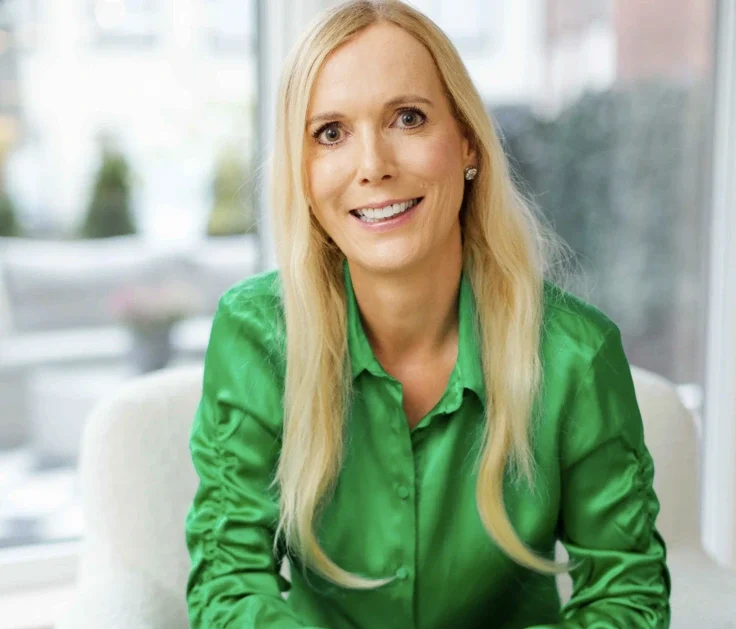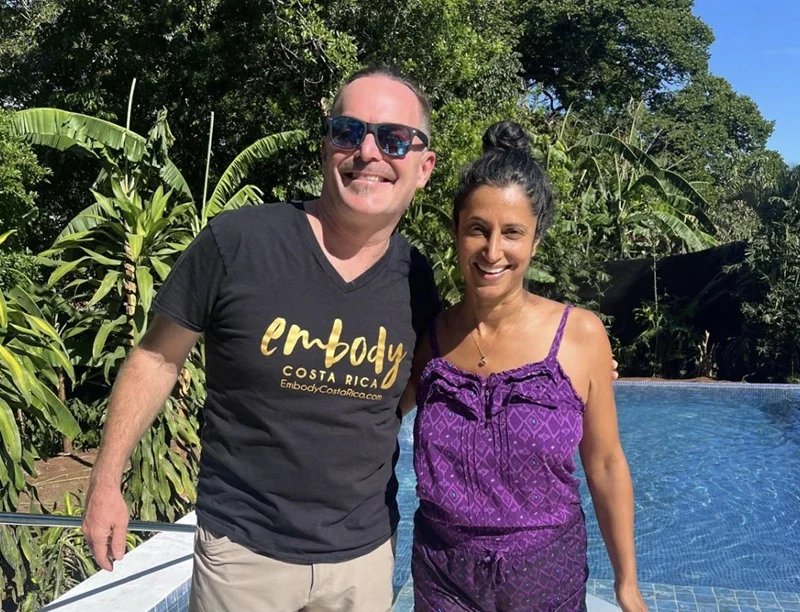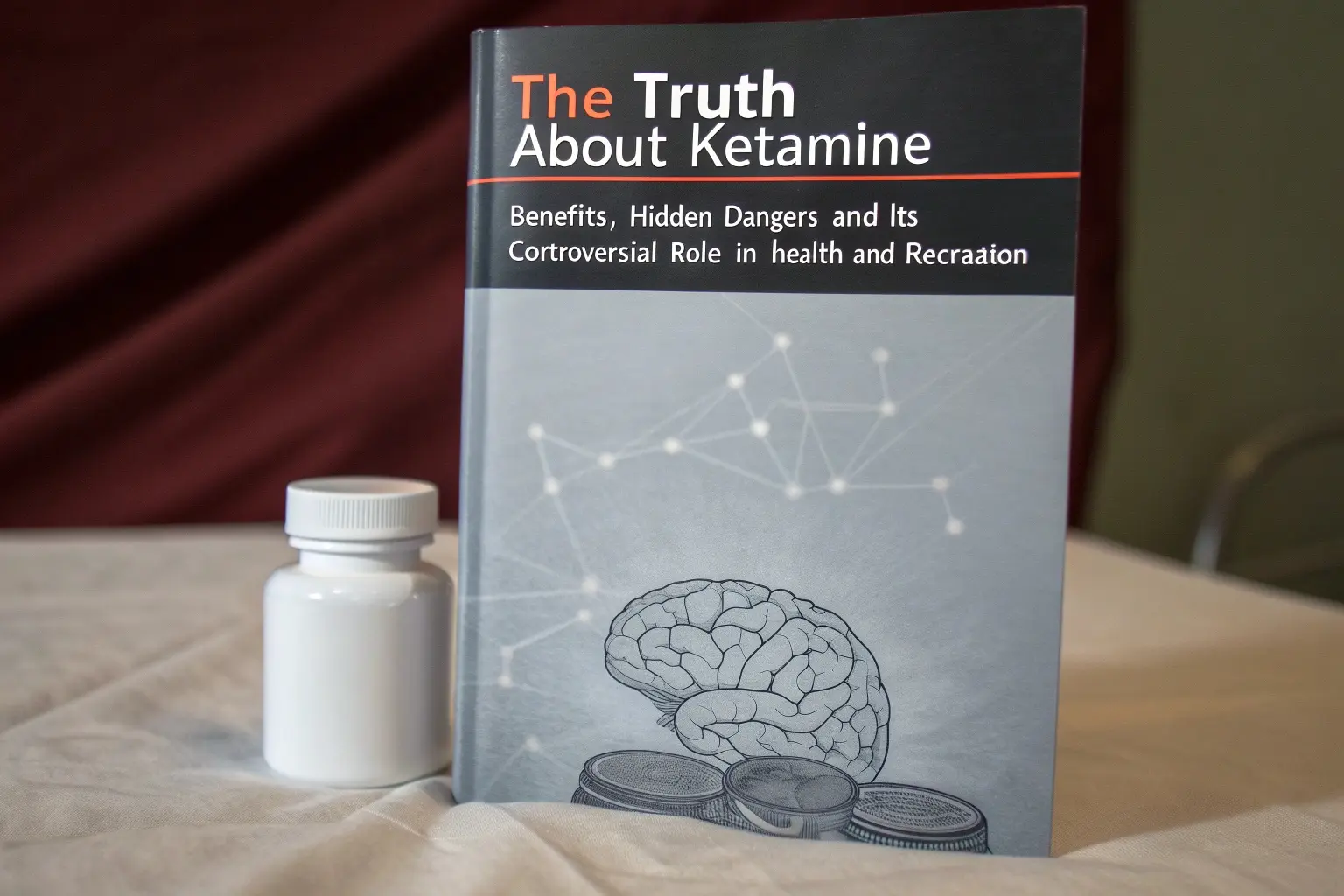Keto, Healing, and Heart: A Conversation with chef Maria Emmerich
Told she’d never have kids and handed a stack of prescriptions at 16, Maria Emmerich changed her life—and her dog’s—by changing their diet. Now she’s helping others trade sugar and

1. Maria, you’ve been a major voice in the keto and carnivore space—what originally led you to embrace this way of eating, both personally and professionally?
When I was 16, I went to my family doctor because I wasn’t feeling well. At that visit I was given a prescription for acid reflux, a prescription for depression and a prescription for IBS and I was told I had PCOS. She told me I probably couldn’t have my own children.
That same week I took my beautiful golden retriever to the vet because she was losing patches of her hair. The vet asked me what I was feeding her (a question my doctor never asked).
That day I went home and changed my dog’s diet as well as my own, I eliminated carbohydrates, sugar and caffeine. My dog grew her hair and I eventually lost 80 pounds and never needed any of those drugs.
2. Many fans know you’ve faced health challenges early in life, including PCOS and weight struggles—how did changing your diet affect your health outcomes over time?
When I was told I had PCOS, this was over 28 years ago so there wasn’t the internet. But when you look into what causes PCOS, it’s very clear that excess carbohydrates, sugar and caffeine increases androgens.
It wasn’t easy, considering I worked at a coffee shop where I made the cinnamon rolls, muffins and scones. Whatever didn’t sell during the day, I got to go home with! Yikes
3. Your transformation has been incredible, but some people have commented on your body size, sometimes critically. How do you handle those perceptions, and what would you say to people who equate “health” strictly with appearance?
I only get comments from Americans. My body looks “normal” to Europeans and Asians. Many of them have told me, I look like them. However, body sizes have increased in the United States which has become the “norm.”
4. There’s often confusion between keto and carnivore—can you clarify how you approach both diets and when one might be more beneficial than the other?
Carnivore is an extension of keto. It is a keto diet that eliminates all sweeteners, vegetables and fruits.
I personally feel, the best diet is the one you can stick to. Most oven, eventually people who eat keto long enough, go carnivore. However, I make sure to eliminate dairy for autoimmune disorders and in that case it is often hard to do carnivore.
5. You’ve written dozens of cookbooks that have helped people transition into low-carb lifestyles—what inspires your recipe development, and how do you keep things fresh after so many books?
I often hear people say “I can never give up …” That inspires me to create a recipe for their favorite food in hopes they will try to give up sugar and processed carbs. Sadly there are thousands of processed foods that keep me busy!
Read About: What Is the Healthiest Diet in the World? Here’s What I’ve Learned (and What I Eat Now)
6. Critics of keto and carnivore often cite concerns over long-term sustainability or nutrient balance—what’s your take on these concerns?
The most nutrient dense foods is meat. It’s more nutritious than any vegetable or fruit. Organ meat is the true super food. Most vegetables have anti nutrients such as oxalates.
7. You’ve helped countless people lose weight, reduce inflammation, and even reverse chronic conditions—what success stories have moved you the most?
One that stands out is Twila who lost 270 pounds and I had her featured on Women’s World magazine. She was so large, she never left the house in fear that if she needed a bathroom, she couldn’t fit in a stall. She tried EVERY diet the doctor recommended and nothing worked until I helped her. She is off EVERY medication too!
8. Mental health is a growing concern today—do you see a connection between diet and mood or brain health based on your experience and client feedback?
Yes! I interviewed Dr Edes who is a Harvard Psychiatrist on my YouTube. There is a hospital in France where they host their hardest most-resistant patients (only 50 percent of people have success with meds). They fed them a ketogenic diet and EVERY patient had 100 percent remission
9. How do you balance science, personal experience, and client outcomes in your approach to nutrition and education?
I feel that showing them how easy and time-saving it can be to cook healthy and delicious food at home is very powerful in their success is the most effective method.
10. What’s next for you—any upcoming projects, books, or areas of focus you’re especially excited about?
I am working on a book with my scientist husband that is a nutritional guide to help everyone be successful!
I also have many health retreats coming up, the next one is a keto retreat in India!








